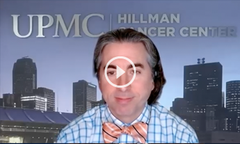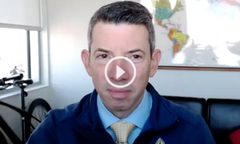
Considering the Changing Treatment Landscape for Patients With Melanoma
Evan Lipson, MD, discusses the evolving treatment landscape for advanced melanoma.
Episodes in this series

Evan Lipson, MD, an associate professor of oncology at John Hopkins School of Medicine and a head and neck oncologist at John Hopkins Medicine, discusses the evolving treatment landscape for advanced melanoma.
During a Case-Based Roundtable meeting, Lipson and participants talked about the complexity of choosing the right therapy for each patient at the appropriate time due to the abundance of new treatment options. He emphasizes the need for oncologists to share experiences and collaborate on the best sequence of these therapies.
Key considerations include efficacy, longevity of response, and toxicity profiles of the drugs, both individually and in combination. The discussion highlights the importance of understanding drug interactions and their outcomes in terms of adverse events and tumor response durability.
TRANSCRIPTION:
0:10 | My focus is in treating patients with advanced melanoma. I think what's so significant about the discussion that we had was that right now, the treatment landscape for patients who have advanced melanoma has expanded so much just in the last few years. There are several regimens now that are being recommended by some of the national guidelines, and I think parsing through which regimen is appropriate for which patient at which time is pretty challenging these days. There are so many options, which is a good problem to have, and so I think it's important for all of us to share our experiences and discuss what might be the best sequence of these new therapies to use in patients with advanced melanoma.
0:58 | I think some of the key takeaways from our discussion the other night, is just how complicated it is to figure out which therapy is right for which patient at which time. There are so many aspects to consider when thinking about the way we treat patients and the sequence that we use these therapies. There are considerations with regard to efficacy; how much data do we have in terms of the longevity of response? What do we know about the toxicity profiles of some of these drugs in combination and by themselves? So I think the key takeaway for a lot of the participants was a better understanding of how these drugs interact and what the outcomes might be, both in terms of [adverse events] and durability of tumor responses.













































